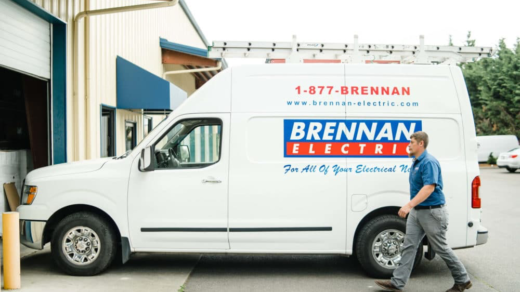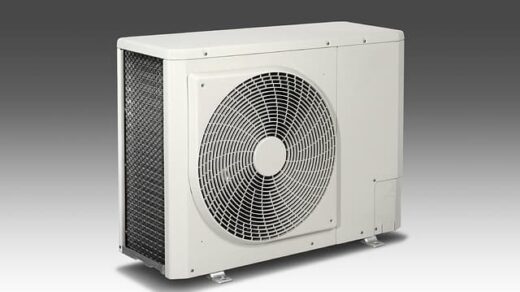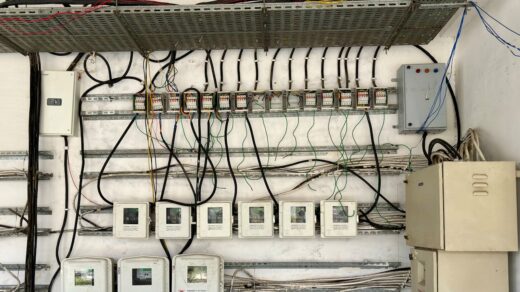In Vancouver, where summer temperatures have been steadily rising in recent years, a reliable air conditioning system isn’t just a luxury—it’s quickly becoming a necessity. Whether you live in a high-rise downtown or a single-family home in East Van or Kitsilano, your AC system plays a vital role in maintaining a comfortable indoor environment.
But like any home appliance, air conditioners can develop problems over time. Knowing the early warning signs of a failing AC system can save you from unexpected breakdowns and expensive repairs—especially during the hottest days of the year. In this post, we’ll break down the five most common signs that it may be time to schedule an AC repair in your Vancouver home.
Time to Book a Professional Inspection
If you notice any of the signs below, it’s a good idea to reach out to a qualified HVAC or AC repair contractor in Vancouver for a thorough inspection. Catching issues early can often mean the difference between a quick fix and a major, costly repair—or even needing a full system replacement.
In Vancouver, where climate conditions like humidity and salty ocean air can accelerate wear on outdoor units, preventative care is especially important. Regular servicing, typically once a year before summer starts, helps keep your system running at peak performance.
1. Weak or Warm Airflow
One of the clearest indicators that your AC system isn’t working properly is when it’s not delivering strong, cool air. You might feel some airflow coming from your vents, but the air feels warmer than it should, or it’s not circulating through the room effectively.
This could be caused by:
- A clogged or dirty air filter
- Ductwork issues
- A malfunctioning compressor
- Low refrigerant levels
In some Vancouver homes—particularly older houses or renovated condos—ductwork may be outdated or poorly sealed, making airflow problems more common. If you’ve tried replacing the air filter and still notice weak performance, it’s time to call in a technician to assess the situation.
Not only does poor airflow reduce your comfort, but it also forces your AC to work harder, which can shorten its lifespan and increase your energy bills.
2. Strange Noises or Vibrations
Air conditioners should operate quietly. If you suddenly hear unusual sounds coming from your indoor or outdoor unit, that’s a sign something is wrong. The type of noise often provides clues about the underlying issue:
- Rattling or banging: Loose or broken parts
- Buzzing: Electrical problems or debris near the condenser
- Squealing or screeching: A worn-out belt or motor issue
- Clicking: Thermostat or control problems
These sounds may start subtly but usually worsen over time. Ignoring them can lead to more serious damage or system failure. In multi-family buildings or tight Vancouver neighbourhoods, noisy AC units can also become a nuisance to others nearby.
If your AC unit is making unfamiliar or persistent noises, it’s best to shut it off and have it inspected.
3. Musty or Burning Smells
If your air conditioning system starts to emit a strange smell when it turns on, don’t ignore it. A musty smell can mean mould is growing inside the unit or in the ducts—common in Vancouver’s damp climate. Learn more about the risks of mould exposure.
Burning smells may signal electrical problems such as overheating wires or motor issues. These odours aren’t just unpleasant; they could be signs of potential health risks or fire hazards. Turn off your AC and have it inspected if you notice persistent or worsening smells.
4. Moisture or Leaks Around the Unit
While air conditioners do generate some condensation, visible leaks or puddles near your indoor or outdoor unit are not normal. Moisture issues can stem from:
- A cracked or clogged condensate drain
- Frozen evaporator coils
- Refrigerant leaks
- Faulty components or seals
In Vancouver homes where hardwood floors or drywall are common, even minor water damage can lead to costly repairs. Leaks may also encourage mould growth or pest infestations.
Additionally, refrigerant leaks pose environmental and safety hazards and must be handled by licensed professionals. If you notice excess moisture or water around your system, don’t wait—have it inspected right away.
5. Sudden Rise in Energy Bills
If your energy bill has jumped recently but your usage habits haven’t changed, your AC system may be the culprit. As systems age or malfunction, they often work harder than necessary to maintain the same temperature, leading to higher energy consumption.
Dirty filters, worn-out parts, or low refrigerant levels can all reduce efficiency. In a city like Vancouver where electricity costs add up, catching inefficiencies early can make a big difference on your monthly bill.
Final Thoughts
Air conditioning systems don’t fail without warning—they give off subtle (and sometimes not-so-subtle) signs when something is going wrong. If your home is experiencing weak airflow, strange noises, musty smells, leaks, or higher-than-usual energy bills, don’t ignore these red flags.
Getting your system checked promptly can restore comfort, improve air quality, and even reduce your monthly energy costs. More importantly, it ensures your home stays cool, safe, and efficient during Vancouver’s hottest days.
If you’re unsure whether your AC needs repair or just routine maintenance, scheduling an inspection is always a smart first step.








